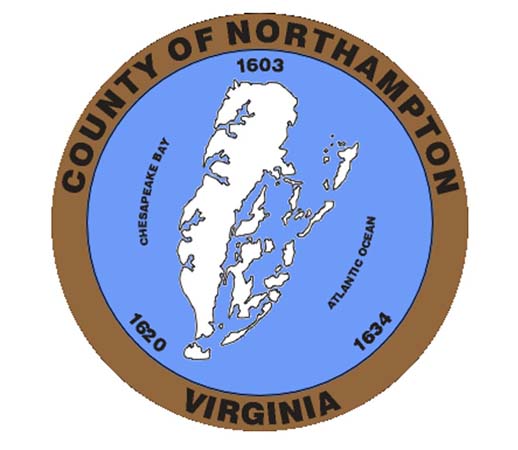BY STEFANIE JACKSON
Northampton supervisors have approved the county’s fiscal year 2025 budget and set new tax rates that will help pay for more than $23.6 million in general fund expenditures.
“This is going to be the lowest tax rate since 2016,” said Supervisor Ernest Smith on Tuesday, June 25.
He was speaking of Northampton’s new real estate tax rate, which is effective for the current year and will be used to calculate the tax bills that homeowners receive in December.
The rate was reduced from 76 cents to 68.5 cents per $100 of assessed value, which will help offset the higher tax bills that many will pay due to rising property values.
The real estate tax rate was reduced by about 10%, but property values increased an average of around 20%, meaning many homeowners will still pay higher taxes than they did last year.
In accordance with Virginia Code, the county had calculated an equalized tax rate of 63.35 cents per $100 — the rate that would produce real estate tax revenue equal to the amount Northampton received last year, plus an additional 1%.
However, supervisors declined to adopt the equalized rate and opted for a rate of 68.5 cents, about five cents higher, to fund the county’s bulging budget. That decision also was permitted by state law.
Supervisor Oliver Bennett stood alone in opposing the effective tax increase.
“I ask myself the question, ‘Are we good stewards of citizens’ money?’ It’s not my money,” he said.
Bennett questioned whether all of the items in the budget were truly needed and warranted raising taxes.
Northampton will receive about $2.9 million more in real estate tax revenue this year, a total of nearly $21.3 million. The county generated about $18.4 million in real estate tax revenue last year.
“When I raise taxes, I say, ‘Am I hurting those folks that I’m trying to help?’” Bennett said.
Much of the additional tax revenue will support Northampton County Public Schools.
Last year, the county’s contribution to the cost of running the school system was nearly $10.5 million.
This year, the schools will receive about $12.8 million in local funding — an increase of around $2.3 million.
At least $1 million of that additional funding was needed because a state calculation called the local composite index determined that Northampton can afford to pay more of the cost of its public education.
The local composite index is based 50% on real property values, so a county with a high percentage of low-income families won’t necessarily benefit.
Smith supported the new tax rate but suggested Northampton should do more to draw attention to its tax relief program for the elderly and disabled.
A taxpayer with an annual household income of no more than $50,000 can receive up to $1,000 in tax relief per year.
Deputy County Administrator Janice Williams said that every Northampton real estate tax bill provides notice of the tax relief program and directs the taxpayer to the county website for more information.
Supervisors noted that some elderly residents don’t see the notices on their tax bills or use the internet.
Smith said many residents complained because they did not become aware of the program until after the application deadline had passed.
He also suggested raising the program’s income limit.
But “I don’t want schools cut. I don’t want anything … that we need to be cut,” Smith said.
Supervisor John Coker noted that, over the last two years, the rate of inflation was about 12%, “and this budget is not near that kind of increase.”
“This is not a big increase,” Coker said, “and it’s an increase I think we need to make.”




